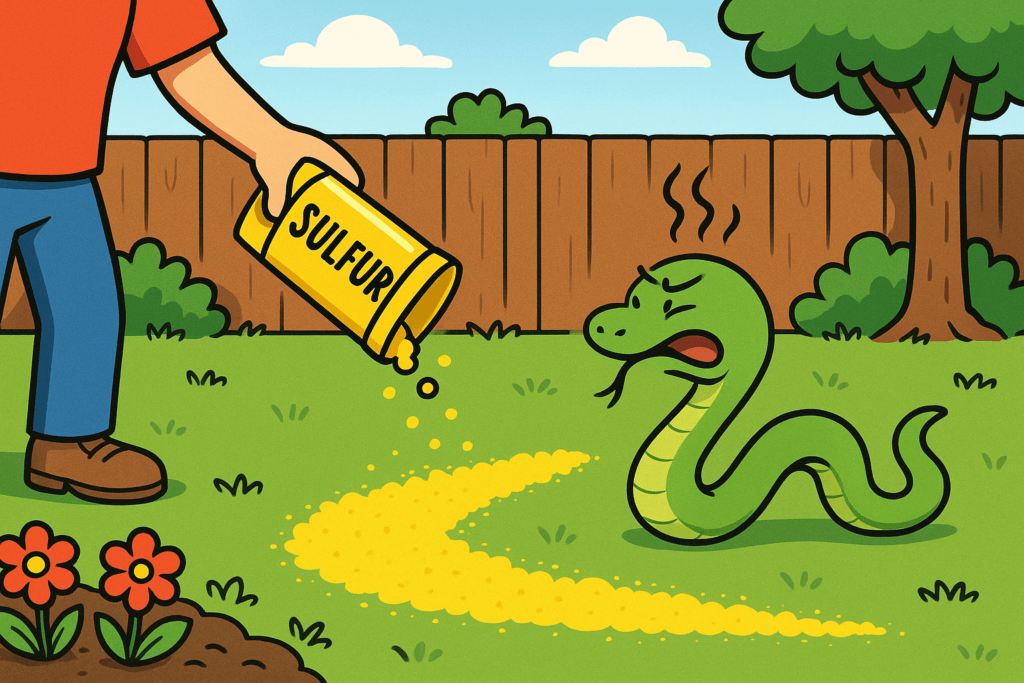India is home to some of the world’s most venomous snakes, including cobras, vipers, and kraits. These snakes can pose a serious threat to humans, especially in rural or suburban areas. While snakes play a crucial role in the ecosystem by controlling rodent populations, the fear of encountering one in your backyard, garden, or home is real. In India, where snakes are often encountered in fields, farms, and even residential areas, it’s important to use effective measures to keep them at bay. Fortunately, there are several solutions available. In this post, we’ll explore the most effective snake repellents in India, from natural methods to chemical solutions, and how you can apply them safely to protect your home.
1. Carbolic Acid: A Powerful Natural Snake Repellent
Carbolic acid, also known as phenol, is a highly effective natural snake repellent. It has been used for many years as a cleaning agent, but it is also known for its strong smell, which repels snakes. When snakes detect the intense, pungent aroma of carbolic acid, it irritates their sensitive olfactory senses, forcing them to avoid the area.

How to Use:
- To create a snake-repelling spray, dilute carbolic acid with water in a spray bottle. The recommended dilution ratio is usually 1:10, where one part carbolic acid is mixed with 10 parts water.
- Apply the solution generously around the perimeter of your property, along the fences, near entryways, around garden beds, and under sheds where snakes are likely to hide.
- Carbolic acid can also be used around the entrance to your home or areas where you’ve spotted snake activity in the past.
Why Paper Turns Yellow Over Time: The Fascinating Science Behind Aging Paper
Why It Works:
Snakes rely heavily on their sense of smell to navigate and detect prey. The overpowering scent of carbolic acid interferes with their ability to detect other smells, causing them to leave the treated area. This makes it an ideal and humane solution, as it doesn’t harm the snakes but simply makes the area uninviting.
2. Sulfur: A Traditional Snake Repellent
Sulfur, commonly known as brimstone, has been a natural snake repellent for centuries. This traditional remedy works by releasing a strong odor that snakes find unpleasant and disturbing. Sulfur is an effective option for creating a barrier around your property to discourage snakes from entering.
How to Use:
- Sprinkle sulfur powder around your garden, yard, or the perimeter of your property. You can also place sulfur granules at the base of trees, under shrubs, or in areas where you’ve seen snakes.
- If you live in a rural or agricultural area, apply sulfur to fields or crops to prevent snakes from coming near.
Why It Works:
Sulfur creates an unbearable smell for snakes, especially species like cobras and pythons, which have a heightened sense of smell. The sulfur prevents them from entering treated areas by overwhelming their olfactory system. This method is simple, inexpensive, and effective for areas with high snake activity.

3. Garlic and Onion: Natural Snake Repellent
Garlic and onion, both known for their strong sulfur compounds, are another natural and easily accessible snake repellent. The smell of crushed garlic and onion is highly offensive to snakes and serves as an effective deterrent. This natural remedy can be made at home using ingredients you probably already have.
How to Use:
- Crush a few cloves of garlic and an onion and mix them with water to create a spray solution. You can also grind them into a paste and dilute it with water.
- Spray this mixture around your garden, yard, and the perimeter of your house, particularly near entry points such as windows, doors, or cracks where snakes might enter.
- Alternatively, you can scatter crushed garlic and onion in areas where snakes are frequently spotted.
Why It Works:
Garlic and onion contain sulfur compounds that are irritating to snakes. The intense smell disrupts their ability to identify food and mates, making the treated areas highly undesirable. This is a natural, cost-effective, and humane way to keep snakes at bay.
4. Vinegar: A Household Snake Repellent
Vinegar is another common household item that can double up as a snake repellent. Its sour, acidic odor is unpleasant to snakes, and when applied to areas where they might be hiding, it forces them to move on.
How to Use:
- Mix equal parts of vinegar and water in a spray bottle to create an effective repellent. You can spray this solution around areas where snakes are likely to pass, such as near garden beds, fences, or under structures.
- To make a stronger solution, you can increase the concentration of vinegar, but it’s important not to apply too much as it can harm plants.
Why It Works:
The strong scent of vinegar interferes with the snake’s sense of smell, causing them to avoid areas where it is present. This solution is particularly effective around the perimeter of your property, where snakes are most likely to enter. Regularly spraying vinegar around your yard can help create an unpleasant environment for these reptiles.
5. Snake Repellent Granules (Chemical Repellents)
Commercial snake repellent granules are one of the most commonly used chemical solutions. These granules typically contain a mix of chemicals that mimic the scent of predator animals or create discomfort for snakes, encouraging them to leave the area. While they may not be as natural as other options, they are highly effective and convenient to use.
How to Use:
- Sprinkle snake repellent granules around your property, especially along fences, walls, and entry points.
- Apply these granules every few weeks or after heavy rain to maintain their effectiveness.
- Some granules can be placed inside your home as well, especially near potential entry points like cracks or gaps in the foundation.
Why It Works:
Chemical snake repellents are designed to create an environment that snakes find uncomfortable. They work by either mimicking the scent of predators like foxes or creating an overwhelming odor that snakes cannot tolerate. These granules can be highly effective in discouraging snakes from entering your property, particularly when natural repellents may not provide long-lasting results.
6. Mothballs: A Household Snake Repellent
Mothballs, which contain naphthalene or paradichlorobenzene, are another commonly used method to repel snakes. The strong smell of mothballs is unpleasant to snakes and helps create an environment they want to avoid.

How to Use:
- Place mothballs in areas where snakes are known to hide, such as under the porch, along fences, or in the attic.
- You can also place them inside the house near entryways, particularly where you have seen snakes or rodents.
Why It Works:
The smell of mothballs confuses the snake’s sensory receptors, making them avoid the area. However, mothballs should be used with caution as the chemicals they release can be harmful to pets and children. Additionally, they may not be effective in large outdoor areas due to their localized impact.
7. Cedarwood: A Fragrant Snake Deterrent
Cedarwood has a pleasant fragrance that works as a natural repellent for snakes. Its strong scent is irritating to snakes, which causes them to avoid areas where cedarwood is present. Cedarwood is safe, eco-friendly, and can also be used for its aromatic properties in the home.
How to Use:
- Place cedarwood chips, blocks, or sachets around your garden, yard, and home perimeter.
- You can also apply cedarwood essential oil by mixing it with water and spraying it around.
Why It Works:
Cedarwood’s scent masks the natural smells that snakes rely on, making it difficult for them to navigate the area. The cedarwood not only deters snakes but also helps create a pleasant fragrance in your home or garden.
Conclusion
There are many effective snake repellents available in India, ranging from natural remedies like carbolic acid and garlic to commercial chemical repellents. The key to choosing the right snake repellent lies in balancing effectiveness, safety, and convenience. Whether you prefer a natural solution or a chemical repellent, it’s important to regularly apply these treatments and combine them with other preventive measures like sealing entry points and maintaining a clean yard.
1. How long do snake repellents last?
The effectiveness of snake repellents can vary depending on weather conditions. Natural repellents may need to be reapplied more frequently, especially after rain, while chemical repellents may last longer.
2. Can snake repellents harm pets or children?
Some snake repellents, especially chemical ones, can be harmful to pets or children if they come into direct contact. Always use repellents carefully and ensure they are out of reach of children and pets.
3. Are natural repellents as effective as chemical ones?
Natural repellents, while generally safer, may not be as long-lasting or strong as chemical repellents. However, they can still be effective, especially when used regularly.
4. Can I use snake repellents indoors?
Snake repellents are generally designed for outdoor use. Using them indoors is not recommended, as the smell may be overpowering and unpleasant.
5. What other measures can I take to prevent snakes?
In addition to using snake repellents, you should also seal cracks and gaps in your home, remove food sources like rodents, and keep your garden and lawn trimmed to prevent snake entry.
